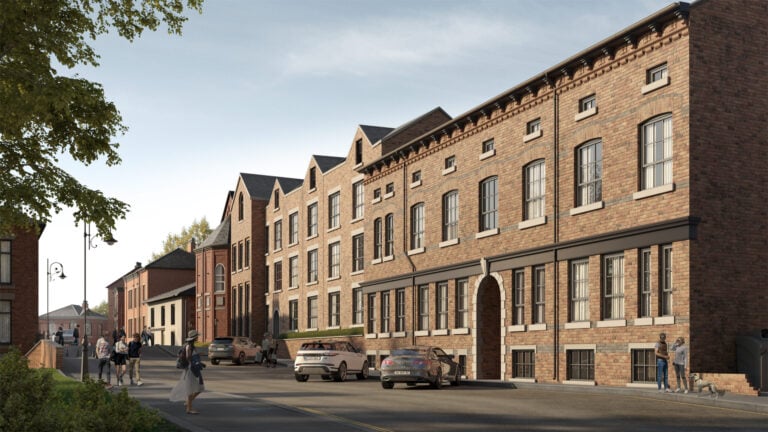The UK has a serious problem with empty buildings, and it’s getting worse. Paresh Raja, CEO of Market Financial Solutions, explores the issue and looks at what can be done.
The number of empty residential buildings has risen by 24% in the last six years. Meanwhile, the shift to hybrid working during the pandemic and higher interest rates have dampened demand for commercial property, particularly long-lease office space.
The prevalence of empty buildings across the UK comes amidst a perennial, nationwide shortage of housing. As a result, the issue of what to do with these empty buildings has become an important debate across both the public and private sectors.
To delve deeper into this issue, Market Financial Solutions (MFS) commissioned an independent survey of 2,000 UK adults to explore the public’s experience of empty buildings in their local area, their faith in the government’s handling of the issue, and how they would ideally like to see these buildings be used in the future.
Britons seeing more and more empty properties
According to analysis by Leeds Building Society, there are currently more than 600,000 empty residential properties in the UK, representing an increase of 23,000 (or 4%) in the last 12 months alone.
Meanwhile, even before the drop in demand in the commercial property sector, there were 172,217 commercial buildings sitting empty across the country – a number that will have grown significantly since this data was published.
With these figures in mind, the UK clearly has an empty building problem, and this is reflected in MFS’s research. A quarter (25%) of UK adults, for example, have noticed an increase in the number of empty or derelict homes on their street over the last five years, while a majority (58%) say that the number of empty properties on their local high street has also risen in that period.
Consequently, a third (34%) of respondents feel that their local area is suffering from there being too many run-down, empty or derelict buildings. But how would they like to see the issue to be addressed?
Addressing the problem
With the issue worsening in recent years, some solutions for solving the empty buildings problem have already been put forward.
For instance, the Empty Homes Agency has stressed that renovating and returning these properties to the market would not only contribute to boosting the supply of homes in the UK, but would have a positive impact on the environment and help to regenerate local communities. This was supported by the majority of respondents in MFS’s survey, with 67% agreeing that the government should do more to incentivise people to buy and renovate derelict properties.
More drastically, just over half (51%) of people think that landlords who own properties (residential or commercial) that have been empty for more than a year should be forced to sell them. Meanwhile, there certainly appears to be a greater appetite for preventative measures, with 61% of respondents agreeing that stricter regulations should be brought in to stop people from leaving their homes vacant or letting them fall into dereliction.
This sentiment has found support from the Labour Party, which laid out plans earlier this year to allow councils to place a 300% council tax premium on long-term empty properties in order to disincentivise landlords or homeowners from leaving their properties empty for extended periods of time.
However, simply incentivising – or penalising – landlords is not going to address the issue on its own. Nor can we expect the public sector to bear the load when it comes to renovating and reintroducing Britain’s empty buildings to the market.
Indeed, if the problem is going to be effectively solved, the private sector will have an important role to play – so what kinds of properties could investors look to if they choose to take on an empty property and flip it?
Regenerating Britain’s empty buildings
If the empty building problem is a headache, then converting vacant properties into new homes appears to be the painkiller of choice for the overwhelming majority (74%) of Britons.
This is hardly surprising – the shortage of homes in the UK is well-documented, and three in five (63%) UK adults think that putting empty buildings back onto the property market would be the most effective way of boosting supply.
Elsewhere, Britons would also be in favour of empty buildings being turned into green spaces (68%) or repurposed for community and shared space (66%).
Encouragingly, there is also significant appetite for new commercial units to be created by the renovation of empty or derelict buildings. For instance, 51% of respondents to MFS’s survey said that they would support the conversion of empty buildings into more shops, while a further 51% said that they would welcome more hospitality venues being built.
Financing property renovations or conversions
With that being said, empty buildings could provide investors – both residential and commercial – with some intriguing investment options.
However, whether it’s to boost the supply of homes in the UK or contribute to the regeneration of a local high street, renovation and conversion projects can be fraught with unforeseen challenges. As such, it’s important that investors can access fast and flexible financial products to help them navigate their ‘flipping’ projects with confidence in the years ahead.
By providing things like auction or permitted and light development bridging loans – or indeed buy-to-let mortgages – lenders can play a vital role in helping to breathe new life into local communities, while the boosted supply of homes should contribute to creating a more equitable housing market as well.
In the long-term, a collaboration between the regulatory and fiscal clout of the public sector with the innovation and investment of the private sector is a must if we are to tackle the issue of empty properties. Making better use of these existing buildings is an exciting opportunity to address multiple social and economic problems, and it is an opportunity that must be seized.
—-
Paresh Raja is the founder and CEO of Market Financial Solutions (MFS), a London-based specialist lender that provides bridging loans and buy-to-let mortgages. Prior to establishing MFS in 2006, Paresh worked as a senior professional consultant in one of the top five management consultancy firms, and also set up an independent investment group.









